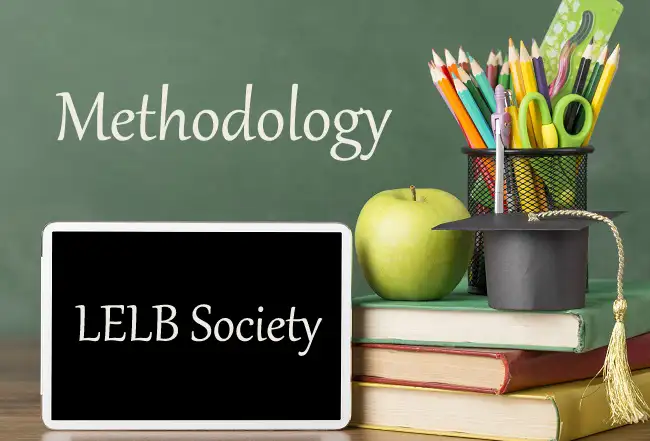Table of Contents
- Watch this video on LELB Society methodology
- Asynchronous learning in LELB Society methodology
- Learn vocabulary in context with images
- Flipped learning
- Content-based instruction
- Round table activity
- Skill integration
- Learner autonomy
- Portfolio assessment
- Continuous and formative assessment
- Social presence and LELB Society methodology
- Constructivism in education
- A wiki for English and Persian learners and teachers
- Untethered hybrid language learning
- Gamification in education
In this article, we’re going to elaborate on LELB Society methodology for our English and Persian students in our bilingual academy. LELB Society is a bilingual academy of English and Persian with innovative and practical methods and activities in the realm of second language acquisition. Our 150+ registered students enjoy learning English and Farsi both synchronously and asynchronously with the full support of our bilingual teachers.
Watch this video on LELB Society methodology
Asynchronous learning in LELB Society methodology
According to the LELB Society methodology, language learning does not necessarily occur in online classes or synchronous learning. Conversely, the major part of learning at LELB Society is provided through asynchronous learning, that is on-demand and at our students’ preferable pace and convenience. The employment of asynchronous learning at LELB Society is perfectly feasible because our students on our WordPress membership site can access 4100+ English and Persian lessons with videos and comment boxes that support both text and audio commenting systems.

In LELB Society methodology, over 150 students can access and study the categories of our English and Persian lessons regarding their needs and interests. Through flipped learning and asynchronous learning, our students study our premium lessons and watch our lectures and teachings in the form of video tutorials embedded in the lessons as many times as they wish. Then, if there is any question, our students can contact our bilingual teachers in our discussion boards or comment forms, exchanging text or voice comments.
Learn vocabulary in context with images
LELB Society is like wikipedia.org for English and Persian learners. This is mainly because our students can learn vocabulary in context with images and enjoy the subject matter at the same time. The category of English vocabulary in context at LELB Society currently includes 2,820 advanced vocabulary items selected from the following best-selling vocabulary books and packages:
- 1100 Words You Need to Know
- 504 Absolutely Essential Words
- 601 Words You Need to Know
- GRE Vocabulary Flashcards in Real Context
- Vocabulary for the College-Bound Student
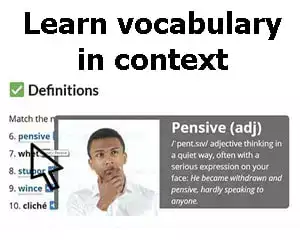
All these words and phrases are carefully illustrated and used in real context, such as books, documentaries with transcripts, magazines, short stories, poems, movie scripts, important websites, and the like. From a neurolinguistic point of view, vocabulary mastery through visual learning is so beneficial because our brain is primarily an image processor. In the category of our English vocabulary in context with images, even the most abstract vocabulary items have been visualized and contextualized for a deeper and better understanding and mastery.
Flipped learning
In LELB Society methodology, our teachers do not teach one single lesson to various students again and again. We believe this approach is in fact such a waste of time. Alternatively, we record our teachings and lectures and embed them in the lessons exclusively available to our registered students. We do our best to provide these lectures and teachings in the form of video tutorials at the highest quality.
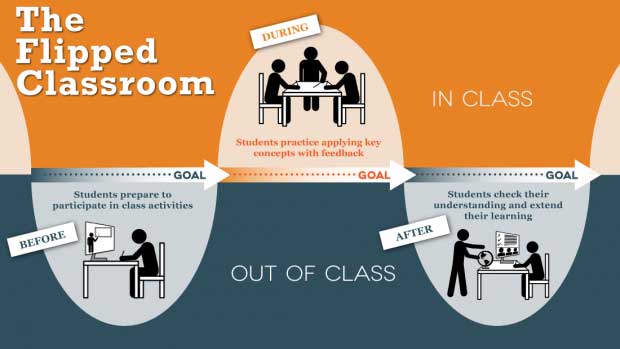
The previous paragraph is a perfect example of flipping second language classrooms. This is because in flipped learning, active learning in the form of group projects, problem solving and discussions takes place as in-class activities. In our round table activity, which is a combination of both in-class and out-of-class activities, using asynchronous learning, our students study assigned lessons and lectures at their convenience before our live classes.
Subsequently, in our online classes on English and Farsi, we experience active learning on the basis of the students’ contributions to the course in the form of comments, questions, and answers. As far as LELB Society methodology is concerned, we’re employing a particular type of flipped learning, which we call collaborative flipped learning. Collaborative flipped learning can perfectly account for social autonomy or interdependency among the students as they need to interact with each other, including the teacher, in order to realize social presence.
Content-based instruction
LELB Society was founded on July 15, 2015 by Dr. Mohammad Hossein Hariri Asl, PhD in Teaching English as a Foreign Language (TEFL). The meaning of LELB Society comes from the acronym: Learn English to Live Better, and recently, we’ve added Persian to this acronym as Learn English and Persian to Live Better. We updated our main motto after inaugurating our Persian language learning department in 2017.

Learning English and Persian to Live Better (our main motto) indicates that we’re so concerned with feeding our students with interesting, useful and challenging content or subject matter. This quality is at the center of content-based instruction or CBI in second language acquisition. To gain an overall perspective on employing CBI at LELB Society, you can review the popular tags used in our English and Persian lessons.
Round table activity
Round table is an interactive activity designed and developed by Dr. Mohammad Hossein Hariri Asl, the founder of LELB Society, to realize and reinforce social presence in our bilingual academy. Our round table activity, which is one of the cornerstones of LELB Society methodology, can perfectly bridge the gap between synchronous learning in the form of online classes and asynchronous learning taking place in asynchronous channels of communication, namely English and Persian forums.

In each round table activity, we give our students the direct links to the assigned materials before online classes. Our English and Persian students study the assigned lessons and watch the embedded videos based on flipped learning at their own convenience. Then, using our comment forms and forums, the students leave questions, comments, and opinions on the assigned materials asynchronously. Finally, in our online classes, we chiefly focus on the students’ comments and opinions to have an informed discussion.
Skill integration
As it was indirectly mentioned in the previous section, in each round table activity, all the 4 language skills are integrated and practiced naturally. It seems to be so obsolete to teach or learn language skills separately. After all, this is not something that awaits second language learners in the real world. For this reason, we believe that skill disintegration is neither practical nor natural.
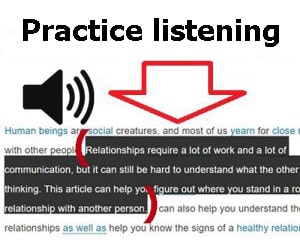
At LELB Society, we’re using multimedia content to help our students practice the oral skills, i.e. listening and speaking. For example, our students can select any text and listen to it on demand, thanks to our installed text-to-speech software program only available to our registered students or the new ones on free trial.
Furthermore, on the premise of flipped learning, we’ve already taught all the English and Persian lessons by embedding video tutorials in them. Therefore, our registered members can watch and listen to thousands of video tutorials and podcasts embedded from LELB Society YouTube channel with 3,300 subscribers throughout the world.
Learner autonomy
Learner autonomy is defined as learner’s ability to take charge of their own learning in a conscious manner. As a result, we believe that our methodology and curriculum at LELB Society can make language learners more autonomous because our educators are primarily facilitators and enablers who are always ready to help our students only when assistance, clarification, and support are required.
Asynchronous learning at LELB Society can make our students more autonomous in second language acquisition. This is because we do not spoon-feed our students. On the contrary, we provide them with everything they need to stand on their own feet and grow their linguistic competency by themselves.. To be more precise, our students have access to thousands of premium lessons with video tutorials.
The most difficult vocabulary items in our lessons have already been taught based on visual learning in real context. Our students can listen to any selected text to improve their pronunciation and listening comprehension on-demand. However, learner autonomy in LELB Society methodology does not imply that we do not assist our students at all. In fact, our 150+ English and Persian students can use our professional assistance and feedback whenever needed through asynchronous learning.
Portfolio assessment
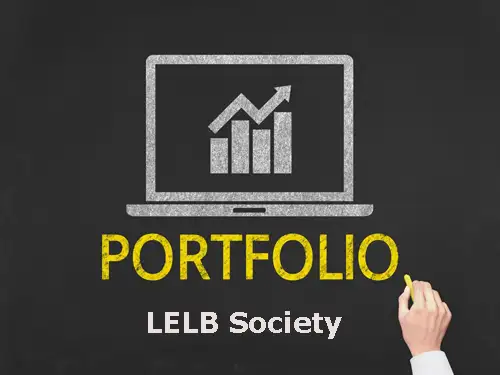
The interaction between our students and bilingual teachers, including the assigned materials and completed tasks, is recorded and archived in our students’ profiles. This collection of records in portfolio assessment can indicate student development or competence over time. The parents of our young learners are also capable of checking the academic progress of their children, thanks to our portfolio assessment system included in LELB Society methodology.
Portfolio assessment can help us as educators develop and conduct language tests for our students because the log or history of academic activities, assignments, and tasks is accessible to both teachers as test developers and students as test takers. Although in LELB Society methodology more priority is given to the lengthy process of education and language learning as authentic assessment, periodically we give some tests to our students to amalgamate both process-oriented and product-oridented assessment.
Continuous and formative assessment
As mentioned before, according to LELB Society methodology, we consciously do not give priority to final examinations with the intention of measuring our students’ true knowledge or competency, which is based on summative assessment. Instead, continuous or formative assessment in the form of creating student portfolios is put to use to operationalize authentic assessment in education.
Social presence and LELB Society methodology
In online classes or courses, social presence refers to the learners’ ability to perceive other learners as socially and emotionally real people in an online social context. This perception can augment a sense of belonging and student-student interactivity among online students. Online language learners, little by little, forget that they’re learning a second or foreign language in a virtual environment, thanks to the realization of social presence.

At LELB Society, learner satisfaction is guaranteed by generating and increasing social presence in the social context of our bilingual academy. To fulfill this achievement, round table activity, flipped learning, and asynchronous activity based on content-based instruction go hand in hand so that our students could learn from each other collaboratively.
Constructivism in education
Our English and Persian students are actively involved in learning by conducting research in our learning community, compiling and updating their portfolios at LELB Society, and learning languages collaboratively. The major portion of learning takes place asynchronously in which students do not receive information directly and immediately from teachers.
According to constructivism in education, teacher-dependency is mindfully discouraged in one way or another. For instance, our students are most welcome to give lectures or write essays on free topics, expand their reading with the Related Posts section at the bottom of each lesson, participate in our forums to exchange questions and answers, and the like. As you can see, in LELB Society methodology, teachers and educators are just facilitators or enablers whose professional assistance is available only when solicited.
A wiki for English and Persian learners and teachers
As mentioned earlier, LELB Society is, in fact, a wiki whose content is developed by its active members, that is, students, teachers, authors, and marketers. We encourage you to join the team of our teachers, authors, and marketers to earn high income and publish your articles, teachings, and other artistic works in your own name and on your profile page at LELB Society. We do our best to get your articles seen on the first page of search engine results pages like Google and Bing.
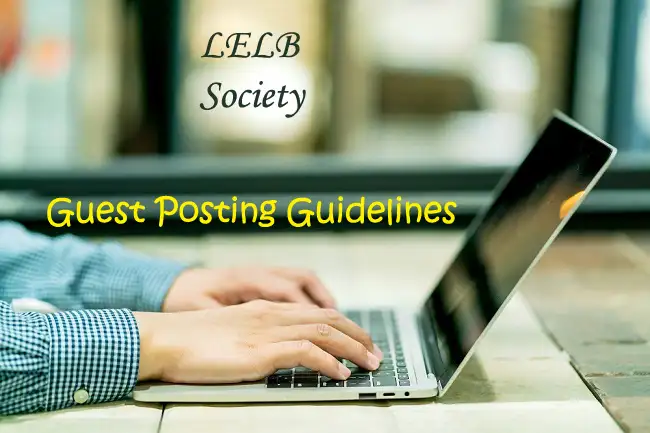
This way, you can refer to your profile page at LELB Society as your professional resume to become more popular worldwide academically and have so many online students and charge them independently and freely without any commission from our side. Study our guest posting guidelines for the LELB Society blog to have more information on how to publish your articles in your own name in our bilingual academy.
Untethered hybrid language learning

The untethered hybrid language learning method combines online learning with self-directed study, offering flexibility and accessibility for busy learners or those in remote locations. This approach dismantles the limitations of traditional classrooms by providing online resources and asynchronous learning alongside opportunities for personalized practice. Learners can fit language acquisition into their own schedules and benefit from a blend of structured instruction and independent exploration.
Gamification in education
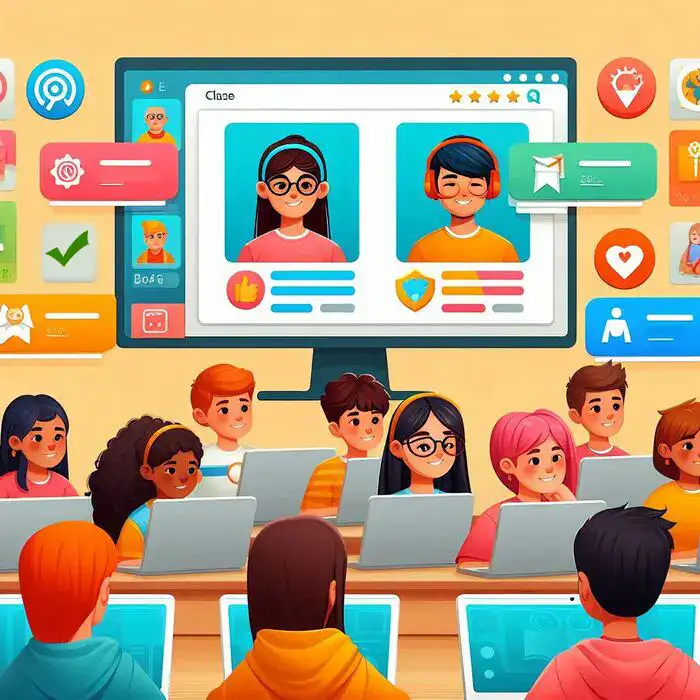
LELB Society is effectively incorporating gamification into its educational approach to enhance student engagement and motivation. By implementing game-like elements, such as points, badges, and leaderboards, LELB Society creates a fun and competitive learning environment. Students are encouraged to participate actively in language learning activities, complete challenges, and collaborate with peers, all while earning rewards and recognition. This gamified approach fosters a sense of accomplishment and progress, making the learning process more enjoyable and stimulating.
Furthermore, LELB Society utilizes portfolio assessment as a powerful gamification tool. By creating a personalized portfolio that showcases students’ academic journey, including guest posts, comments, and forum topics, LELB Society provides tangible evidence of their achievements. This visual representation of progress motivates students to strive for excellence and fosters a sense of ownership over their learning experience. Additionally, LELB Society’s “Round Table” activity promotes pre-class engagement through asynchronous discussions. Students are assigned lessons and encouraged to leave comments, creating an interactive and collaborative learning space. This gamified approach to pre-class engagement enhances student participation and prepares them for deeper discussions during online classes.
